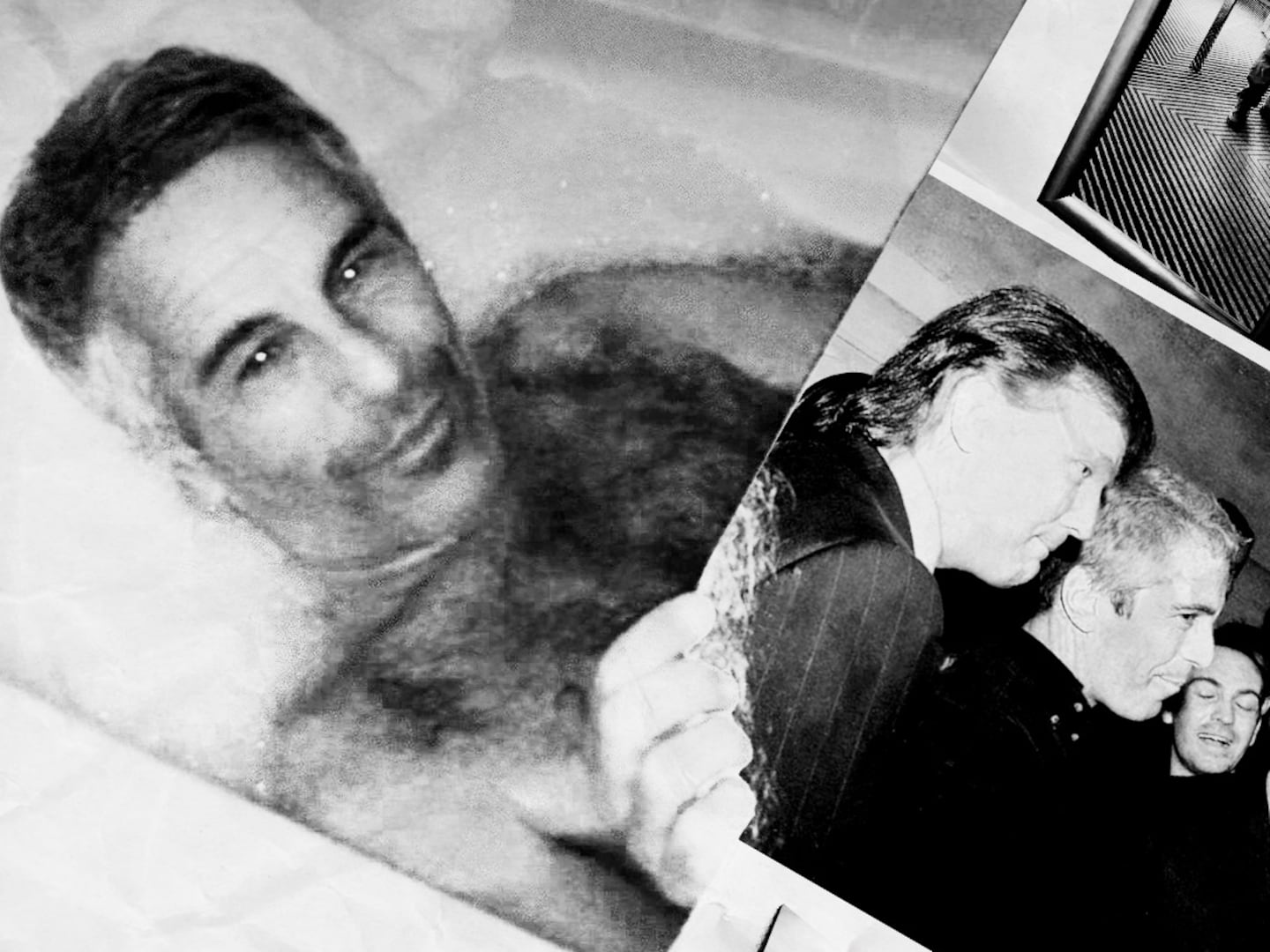Khalid Zafrain came to the U.S. legally as a refugee from Sudan and helped federal agents break up a passport counterfeiting ring—a ring which helped a woman flee the U.S. after allegedly murdering her five-month-old baby.
But despite his work as an informant, Immigration and Customs Enforcement is trying to deport him.
Zafrain is currently being held at the Farmville Detention Center in central Virginia, awaiting deportation proceedings. His story points to a broader challenge for immigration enforcers: As President Donald Trump pushes Immigration and Customs Enforcement (ICE) to amp up deportations of immigrants convicted or suspected of crimes, ICE agents will increasingly rely on the immigrant community for help with their law enforcement mandate. And at a time when immigrants’ trust in ICE couldn’t be lower, the agency’s decision to try to deporting one of the few immigrants who actually helped them won’t make that any easier.
Zafrain isn’t a model refugee; he plead guilty in 2016 of possessing heroin with the intent to distribute, according to court documents reviewed by The Daily Beast. But he helped ICE at great personal risk—and now the agency is trying to send him back to his home country, which is racked by violence and famine, and where terrorists killed his entire family.
Zafrain came to the U.S. years ago from Sudan. Terrorists there had slaughtered his family and enslaved him, according to 2016 court filings from his criminal defense lawyer, Deborah Caldwell-Bono. After coming to the U.S., Zafrain worked as an auto mechanic in the Roanoke area of Virginia. He was arrested in early 2014 while working as a drug mule carrying 59 grams of heroin—a substantial amount. He could have spent up to twenty years in prison.
After being let out on bond, three Sudanese men and one Sudanese woman approached Zafrain with an offer: For about $1,000, they would help him get a fake passport to escape the country. Instead of taking the men up on their offer, Zafrain told the prosecutor working on his case. He was eventually connected with Hunter Durham, a special agent with ICE’s Homeland Security Investigations (HSI).
ICE, the federal agency that enforces immigration and customs law, has two main sections: Enforcement and Removal Operations, responsible for arresting, detaining, and deporting undocumented immigrants; and HSI, which handles a whole host of other law enforcement issues——from prosecuting international child sex offenders to helping the Mexican Army eradicate drug crops to tracking down art thieves. Going after passport counterfeiting rings is also in their purview.
Durham took up Zafrain on his offer to help, an offer Zafrain made in hopes of receiving leniency at his sentencing. According to court documents Durham filed, the two men undertook a risky operation: Zafrain secretly wore recording equipment and met with the Sudanese men who tried to sell him a counterfeit passport. Zafrain met with the men twice, and discussed plans to buy a fake passport from an embassy in Washington. The men confirmed to Zafrain that they got a fake passport for a woman facing charges for murdering her five-month-old child. She escaped from the U.S. and still hasn’t been caught.
On June 10, 2014, Zafrain and the other men drove from Roanoke to Washington D.C. to try to get a passport. They went to the embassies of Sudan and South Sudan, and Zafrain stayed in the car while one of the men chatted with people in the embassy, who aren’t named in court documents. They also went to a CVS in Georgetown for passport photos for Zafrain. Despite the effort, the men couldn’t get Zafrain a fake. Still, he recorded enough conversations to provide pivotal evidence in Durham’s investigation. All four people were convicted or plead guilty.
During the court proceedings for the counterfeiters, a local paper, The Roanoke Times, named Zafrain as an informant. After that story was published, Zafrain was working in a garage as a mechanic when drive-by shooters fired at him. He dove under the vehicle he was working on, according to his criminal defense attorney, and bullets hit the floor of the garage and vehicles around him. They believe the shooting was in retaliation for his decision to help ICE. His lawyer wrote the experience gave him flashbacks to the violence he faced in Sudan.
Federal law enforcement officials—at least at first—expressed deep gratitude for Zafrain’s help. In a memo to the judge deciding Zafrain’s sentence, filed January 20, 2016, the U.S. Attorney for the Western District of Virginia John Fishwick made the case for leniency. First, Fishwick noted that Zafrain was arrested while carrying “a very large amount” of heroin.
“This fact does not work in his favor,” Fishwick wrote.
Then he went on:
“[T]he evidence is that Mr. Zafrain was a heroin courier, not an actual seller of heroin. Of course, heroin conspiracies can’t function without couriers, and other facilitators, but as a courier Mr. Zafrain was not a driving force behind the conspiracy, nor was he a significant player in the overall scheme of things.”
He had been incarcerated for 8 months before being released on bond, Fishwick added, and expecting him to spend any more time in prison would be “excessive.”
The judge agreed and sentenced Zafrain to time-served. He was free.
But being convicted of a drug crime can make immigrants subject to deportation—even refugees who get shot at after helping ICE. And about a month ago, ICE agents arrested Zafrain. They are pushing for his deportation back to Sudan.
An ICE spokesperson told The Daily Beast the agency hasn’t had second thoughts about deporting its own informant.
“Officers with ICE’s Enforcement and Removal Operations arrested Khalid Zafrain, a citizen and national of Sudan, March 27 in Roanoke, Virginia, for immigration violations,” emailed Carissa Cutrell, a spokesperson for the agency. “He is currently detained at Farmville Detention Center in Virginia, pending removal proceedings. Zafrain has a felony drug conviction for possession of heroin with intent to distribute.”
Rob Robertson, Zafrain’s immigration lawyer, told The Daily Beast the ICE statement surprised him a bit.
“It’s interesting that they don’t say anything about how he helped them,” he said.
Durham, the agent who worked with Zafrain, told The Daily Beast he had no comment on his informant’s impending deportation.
For now, Robertson said his first priority is to get Zafrain out of detention on parole until his case goes to court. He said he worries Zafrain could be a target for retaliation from fellow detainees since he was an informant for ICE.
“They should show him some respect and not lock him up with people who are going to know that he cooperated,” Robertson said. “He cooperated with the same people who have locked up all those other people. That’s the concern.”
Immigration attorneys who spoke with The Daily Beast said Zafrain’s case isn’t unheard of. Over the years, there have been numerous reported instances of HSI agents promising to help immigrants in exchange for cooperation—and then breaking those promises. The Asylumist, a legal blog by attorney Jason Dzubow that closely monitors refugee and asylum issues, wrote in May of last year that several of his immigrant clients worked with law enforcement officers on investigations, and in turn were promised special visas for informants, called S visas. But those visas never materialized. One of his clients, he wrote, faced danger in her home country as retaliation for her work with the U.S. government. Despite that, agents still didn’t help her get a visa.
“What particularly bothers me about this case is that my client’s cooperation led directly to her fear of harm, but the U.S. government didn’t care,” Dzubow wrote. “When they got what they wanted from her, the law enforcement agents dropped her like yesterday’s news.”
“It seems to me that any alien who relies on the goodwill of the government in an S visa case is being taken for a fool,” he added.
Hassan Ahmad, an immigration attorney from Northern Virginia, said he had seen the same situation play out: A client worked with law enforcement as an informant and helped agents with successful prosecutions, only to be deported.
“You’ve got not only ICE or HSI but usually there’s a criminal case going on, so you have U.S. Attorneys, you have the FBI, and they’re all sitting here saying, ‘Look, give us what we need. We’ll take care of you,’” Ahmad said. “And they continue to dangle this carrot in front of people who literally have no other choice. And once they get what they need, then they’re basically tossed aside.”
“Nothing shocks me anymore,” he added.





